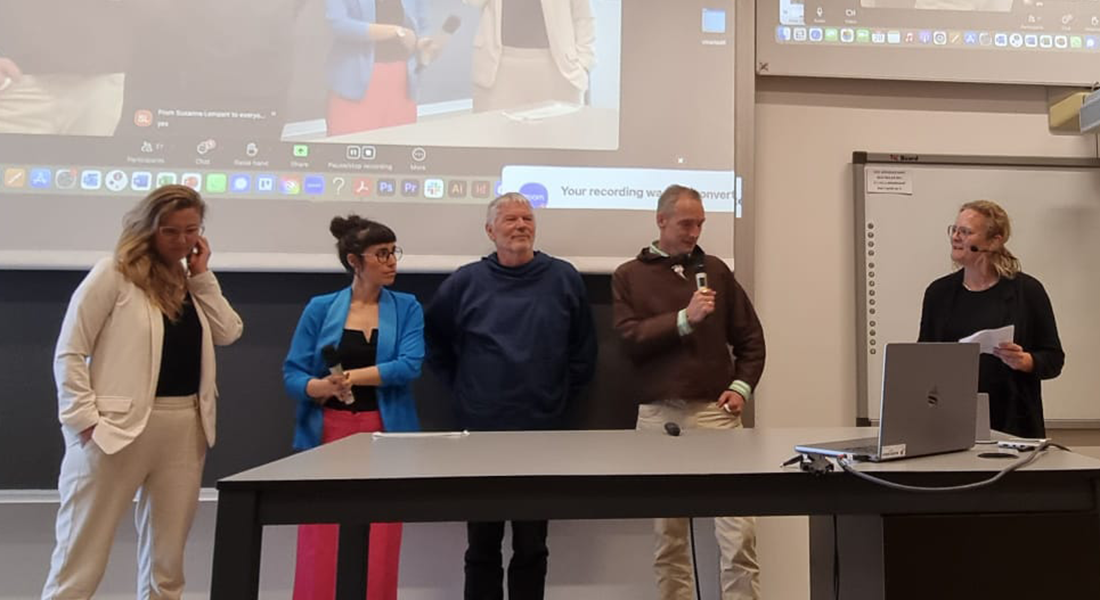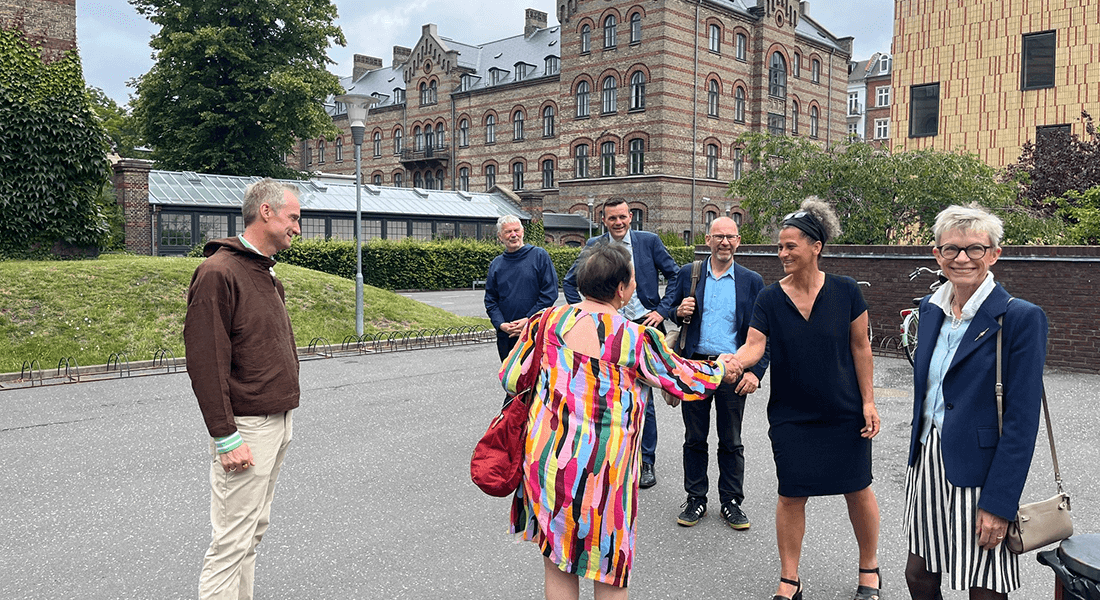Health in Greenland - local and global perspectives
On 28 June 2024, University of Copenhagen's Department of Public Health, Globe Institute, and the School of Global Health hosted an enlightening afternoon symposium about health in Greenland. Watch the recorded presentations below to gain valuable insights on the topic.

The event was organised in connection with the appointment of Michael Lynge Pedersen as Affiliated Professor in Arctic Health at the Global Health Section, Department of Public Health, University of Copenhagen. After Michael’s inaguration lecture on "15 years of Data Driven Diabetes Care in Greenland", three invited speakers with extensive knowledge about health and society in Greenland gave their presentations. A panel followed the presentations and the event ended with a networking reception.
The event was attended by Agathe Fontain, Minister of Health, Government of Greenland.

About the symposium
Health in Greenland is challenged by the harsh arctic environment, long distances, and lack of locally anchored health personnel. Over the last decades, health delivery has been further challenged by markable disease and demographic transitions.
These changes have required adaptive and innovative approaches, involving indigenous understandings of natural resources, food systems and health. In a world facing huge challenges regarding planetary health, climate change and political uncertainty, the lessons learned from Greenland may offer relevant perspectives to the global conversation.
Watch the recordings below
15 years of Data Driven Diabetes Care in Greenland
Michael Lynge Pedersen
Globally, the prevalence of diabetes and other non-communicable chronic diseases are rising with increasing age and prevalence of risk factors. This is challenging human health, health care systems, societies, and thereby the whole environment. These challenges may be exaggerated in remote and sparsely populated areas like the Arctic. Yet, in the sparsely populated Greenland, covering more than 2 million square kilometres, Data Driven Diabetes Care have been used for more than 15 years to address some of these challenges. This inauguration speech with cover learning points and perspectives from this work.
Lessons from an unusual food system – what Arctic Indigenous foods can teach us
Aviâja Lyberth Hauptmann
How we relate to the planet has tremendous impact on our health and our food systems say a lot about how we relate to the planet. The Arctic Indigenous diet is animal-sourced and therefore in contrast to dominant ideologies about healthy and sustainable diets, but with a closer look we can learn a lot about health and sustainability from this unusual diet.
Moving towards a strengths-based perspective in public health research in Greenland
Christina Viskum Lytken Larsen
Arctic individuals and communities have repeatedly asked for research that support their efforts towards sustaining health and well-being. As researchers we are therefore being challenged to investigate and focus on: what are solutions and opportunities to solve health challenges and promote health and well-being in a culturally safe and relevant way. Rather than to keep our deficit-based focus on disease and risk factors. To respond to this challenge The Centre for Public Health in Greenland has developed “Peqqissuserput” : Our framework for community health research based on social and cultural determinants for Inuit health and well-being in Kalaallit Nunaat.
Health and Society in a Greenlandic Perspective
Gert Mulvad
In Greenland´s finance Act for 2024 it appears that 22 percent of the country´s expenditure goes to Health Services. The fishing industry accounts for over 90 per cent. of Greenland's exports. A significant subsidy to the Greenlandic Finance Act. The connection between health research and research of natural resources is therefore an important aspect to discuss. Greenland has a central place in the Arctic Council, where health and well-being of indigenous peoples is a high priority. This presentation will present some of these plans.
Panel conversation
